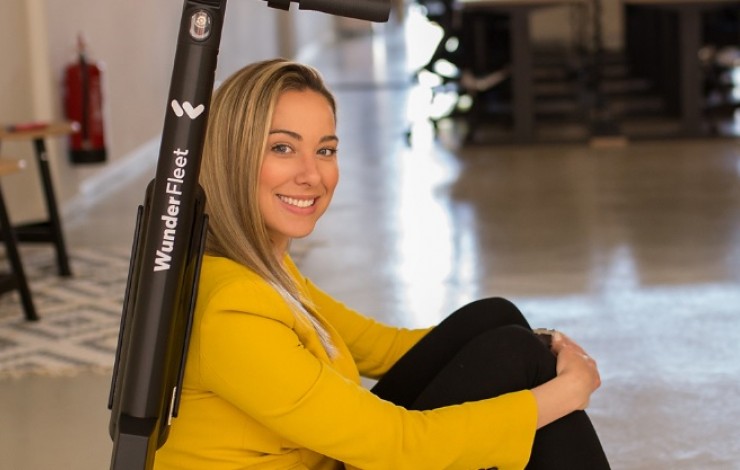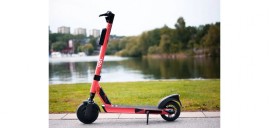Tamy Ribeiro is the Chief Mobility Evangelist & Head of Partnerships at Wunder Mobility, a tech startup which was created in Hamburg, Germany, with the mission to provide a smart mobility marketplace. On November 26th, she will participate to a re-invented edition of Luxembourg’s Mobility Summit and share her expertise by notably depicting the latest trends of a sector that is going through a deep transformation phase. Prior to her keynote speech, we met with her to address to current mobility challenges faced by Europeans, while discussing the need for private companies and cities to collaborate on the establishment of a new type of mobility.
What are the main mobility challenges users face every single day in Europe? Wunder Mobility also has offices in India: how are the mobility challenges different from the ones in Europe?
The mobility challenges that users face in Europe varies wildly depending on location. In parts of Eastern and Southern Europe, very limited resources are being spent on the upkeep and maintenance of streets and bridges. In our major metropolises like London and Paris, congestion remains a huge problem. And in Germany, which is known as the "auto nation", private car ownership is still de rigueur in many suburban and rural areas - not just because of the car’s popularity, but because investments are only being made in urban projects, and not in rural mobility initiatives. That needs to change!
In India, the landscape is vastly different. India has the second largest population in the world, which translates into more issues with overcrowding and congestion. In some rural areas, infrastructure is at times almost nonexistent, which naturally comes with its own set of challenges. Cultural differences like preferring motorbikes to ride hailing also need to be accounted for.
What is your vision of today’s mobility? Which aspects need to be improved? How?
We are already off to a good start with new and accessible shared mobility types, but a big problem with mobility today is the lack of cooperation between cities and private companies. A range of new providers have entered the market recently and are competing for precious space in cities, and local governments are often ill-equipped to manage the influx.
The key is to encourage collaboration between cities, startups and other mobility services. Without teamwork, there is no way cities will be able to offer functional and efficient transportation systems that everybody can use in the future. The end goal should always be to improve the quality of life for citizens, and that cannot happen without cooperation.
What are the main challenges you faced when building an entire mobility ecosystem? What about working hand in hand with cities?
It was very difficult to find an optimal way of positioning ourselves at the right place in the overall mobility value chain, which includes manufacturers, dealers, tech providers and consumers. Understanding the different intersections of technology stacks that power different mobility solutions and then coming up with a common tech stack was not easy.
The biggest difficulty we faced when working with cities was identifying the right stakeholders that were involved in mobility-related decision making. It is one of those things that sounds much simpler than it actually is. As a startup, we have always been used to working quickly, but governments understandably run at a different speed, which takes some getting used to.
The entire interview can be read in the 16th edition of BEAST Magazine.
Interview by Alexandre Keilmann










